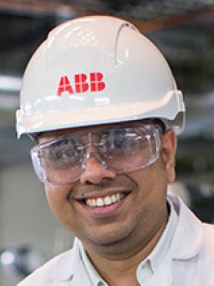Summary
Umang received his Masters in Chemical Engineering from Gujarat University, India and worked as a Lecturer in Chemical Engineering at L.D. College of Engineering for 5 years before pursuing a PhD in Chemical Engineering from Imperial College London. Umang has developed surface preferential approaches for nucleation and crystallisation of biological and complex organic molecules. More recently, he has worked as a Research Associate investigating the role of surface properties on particle-particle interaction and developed approaches for decoupling contribution of different surface attributes on powder cohesion. In 2012, as recognition to his contributions to Undergraduate laboratory teaching, he was been nominated for the Graduate Teaching Assistant Awards for the Faculty of Engineering. Umang currently has a role in leading the operation and innovation of the teaching laboratories.
Publications
Journals
Shah UV, Inguva K, Tan B, et al., 2022, CREATE labs – Student centric hybrid teaching laboratories, Education for Chemical Engineers, Vol:37, ISSN:1749-7728, Pages:22-28
Bhute V, Sengupta S, Campbell J, et al., 2022, Effectiveness of a large-scale implementation of hybrid labs for experiential learning at Imperial College London, Education for Chemical Engineers, Vol:39, ISSN:1749-7728, Pages:58-66
Chadha D, Campbell J, Maraj M, et al., 2022, Engaging students to shape their own learning: driving curriculum re-design using a Theory of Change approach, Education for Chemical Engineers, Vol:38, ISSN:1749-7728, Pages:14-21
Chadha D, Kogelbauer A, Campbell J, et al., 2021, Are the kids alright? Exploring students’ experiences of support mechanisms to enhance wellbeing on an engineering programme in the UK, European Journal of Engineering Education, Vol:46, ISSN:0304-3797, Pages:662-677
Conference
Chadha D, Shah UV, 2023, Work-in-Progress: Unpacking Graduate Teaching Assistants' (GTAs) Taught Practice - Exploring Training through Decisional Capital

